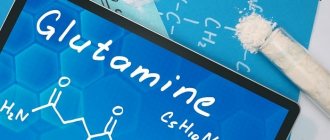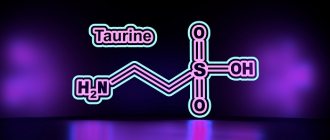Caffeine is the most consumed stimulant in the world. And in most cases it enters the body with coffee. Today, coffee is the second most consumed drink among all drinks after water. About 2.25 billion cups of this drink are drunk every day. In addition to coffee, caffeine is also found in other plants: tea, mate, guarana, cola, cocoa. In nature, caffeine is produced by plants to ward off pests and attract pollinating insects. There is synthetic caffeine.
What is caffeine
Caffeine is the most common central nervous system stimulant on the planet. Refers to alkaloids, the chemical name is 1,3,7-trimethylxanthine. It is found in many products, although the highest concentration of the substance is found in coffee beans. The substance is also one of the most studied in science, because the benefits and harms of caffeine for humans have long been identified by scientists. However, even with this level of knowledge, new and in-depth research continues to reveal new beneficial properties. Thanks to them, over the past 20-25 years, caffeine has turned from a “harmful” and heart-hazardous product into a useful substance that is used in various fields: from sports to cosmetology.
Caffeine actually got its name from the popularity of coffee. The same chemical compound is found in yerba mate tea, where it is called matein. In tea leaves it is called “tein”, and in guarana it is called guaranine.
About caffeine in general
Caffeine is an alkaloid and a known central nervous system stimulant. For pharmacological purposes, it is produced synthetically. Extracted from plants.
It is often included in energy drinks, sports nutrition, fat burners, and pre-workouts.
In bodybuilding, it can develop strength and stimulates a surge of norepinephrine. Thanks to which the muscles contract better. As a result, the feeling of physical tension is slowed down. The athlete can lift significant weight.
Caffeine is a performance enhancer that works. According to the results of many scientific tests, thanks to it, efficiency increases by 22%.
To improve athletic performance you need 470 ml of coffee. This is 2 cups.
Also, caffeine does not dehydrate the body.
The use of caffeine from 3 to 6 ml per kg of body weight approximately 30-60 minutes before the training process can have a positive effect on the development of power and endurance in well-trained athletes.
It has been proven that the best source of caffeine is black tea. One sachet contains approximately 40-50 mg. To create an energy drink, you need 5 sachets. You need to infuse the drink for 10 minutes. It is important not to make chifir. In this case, the tea is brewed and dangerous substances from the leaves are released.
Harmful of caffeine: It can aggravate diseases such as ulcers, anemia, heart disease and high blood pressure.
You shouldn’t focus on it to improve your athletic parameters.
Effect of caffeine on the body
All over the world, caffeine is used as a central nervous system stimulant, which is considered the main effect of the substance and drink that contains it.
Main effects:
- Increases energy levels;
- Improves mental activity, gives vigor;
- Accelerates lipolysis;
- Increases physical performance;
- Speeds up metabolism;
- Increases bile production;
- Is a diuretic.
An important effect of caffeine is its lipophilic property, that is, dissolution in fatty acids. Cell membranes consist of lipids, which allows the substance to effectively act on them. Absorption is almost not slowed down by the walls of the intestines and blood vessels, therefore the active substance has high bioavailability. However, this only applies to liquid form, i.e. drinks. In the case of other products (solid) that contain caffeine, absorption occurs much more slowly.
The concentration of caffeine in the blood reaches its maximum within an hour after consumption. The tablet form may act a little faster, while reducing the negative impact on the gastrointestinal tract. This can be considered an undeniable benefit of caffeine in tablets, in comparison with coffee drinks. The duration of caffeine's effects depends on the individual's reaction to the substance. Many studies that have studied the benefits and harms of caffeine for the body have received completely different results. The shortest duration of the effect lasted 2-3 hours. Maximum – 6-7 hours. Therefore, the average stimulation time according to the results of meta-analyses is 4-5 hours.
Why does caffeine invigorate some people but not others?
One study in Canada took a closer look at how the human body processes caffeine. [1] Nutrition consultants and scientists from the University of Toronto conducted a study of 101 male athletes with an average age of 25 years. This group included cyclists, marathon runners, skiers, baseball players, boxers and powerlifters. Using saliva samples, the researchers were able to determine the amount and quality of caffeine that the athletes' bodies were able to process. And how did they do it? Our body contains a gene called CYP1A2. Changes in our DNA can affect how efficient this gene is at processing caffeine. Based on the results, they divided people into groups with fast and slow metabolism , and were able to prove that whether caffeine will benefit you or not depends only on your genes.
How was the study conducted?
Once a week for 3 weeks, all of these athletes came to a testing center where they received caffeine tablets or a placebo. The athletes rested for 25 minutes and then did warm-up exercises. They trained with a predetermined combination of exercises, including the so-called Wingate test. He measured superior aerobic power while riding a regular bicycle for 10 kilometers.
After 4 weeks, the researchers compared exercise performance and CYP1A2 gene test results, finding that caffeine had a positive effect on 49 of 101 athletes (fast metabolizers) and improved their performance by 6.8%. Another 44 athletes (slow metabolizers) did not experience any changes in performance, while 8 athletes with slow metabolizers experienced a nearly 14% decrease in performance , all due to the CYP1A2 gene reacting to caffeine.
The influence and effects of caffeine
When trimethylxanthine enters the body, most of the substance, about 80%, is concentrated in the liver. There, under the influence of various enzymes, the substance is converted into more complex compounds. The remaining 20% is distributed through the bloodstream throughout the body, binding to blood proteins. They are the ones who provide the invigorating effect.
Trimethylxanthine is extremely similar to adenosine, which is formed after the extraction of phosphate from ATP. The accumulation of adenosine serves as a signal to the body that relaxation is necessary. Neurons signal to the brain about the amount of adenosine, which puts the body into a “saving mode.” The benefit of caffeine on the human body is that it binds adenosine, which prevents the signal to the brain from calming and relaxing. The body continues to be awake even with accumulated fatigue. Another effect of the substance is to block the enzyme cAMP.
Effects on the brain
Caffeine easily crosses the blood-brain barrier, which protects the brain from many substances entering the bloodstream. Once in the brain, trimethylxanthine binds to adenosine receptors. The effect of adrenaline on neurons also increases through its effect on cAMP. As a result of these reactions, the brain does not perceive signals of fatigue and works at maximum productivity. It is important to understand that this effect is a kind of “loan” from the body, because after identifying such a “deception,” the brain starts compensation processes. That is why, after caffeine wears off, there is a noticeable decrease in energy, drowsiness and lethargy.
Effects on the heart
Adenosine receptors do not only exist in the brain. They are also found in heart cells. Their task is to reduce heart rate, as well as lower blood pressure by improving blood flow. When caffeine acts on receptors, the opposite effect occurs. The heart begins to beat faster, blood pressure rises, especially under the influence of adrenaline. Taking caffeine can have both benefits and harm for the human body, so it must be strictly dosed. With moderate stimulation, it can safely enhance physical and mental performance. With increasing dosages, taking the substance can lead to tachycardia, excessive overexcitation, insomnia and other negative consequences.
Impact on the gastrointestinal tract
A number of large studies have focused on identifying the benefits and harms of caffeine for the gastrointestinal tract. It turned out that first of all, the substance stimulates the release of hydrochloric acid, which increases the acidity of the stomach. Therefore, it is recommended to drink caffeinated drinks before or immediately after meals. Trimethylxanthine has also been shown to improve peristalsis, which may be beneficial for improving digestion. In terms of minimizing the harm and obtaining the benefits of caffeine, tablets and capsules have a greater advantage over drinks.
Pregnant and lactating women - handle with caution
The European Food Safety Authority recommends that lactating and pregnant women, as well as those planning a pregnancy, limit their daily caffeine intake to 200 mg. Some experts allow 300 mg/day, however, according to some reports, caffeine causes nausea in pregnant women and, much worse, the risk of miscarriage.
There are very few clinical studies on the effects of caffeine on pregnant and lactating women, and in such a situation it is wiser to limit the consumption of the alkaloid. In pregnant women, the time required to remove caffeine from the body increases by more than three times, so caffeine can accumulate: what you drink in the evening is added to what was stored in the morning, and the total dose of the substance circulating in the blood turns out to be higher than calculated.
So, pregnant and lactating women should not exceed the daily dose of 200 mg, although they are allowed 300 mg.
Benefit for health
Contrary to late 20th century propaganda that demonized coffee, the substance is now considered safe. Its positive effects are much more beneficial than possible negative ones, which are associated with the load on the cardiovascular system.
The main benefits of caffeine for the body:
- The preventive effect of long-term use of caffeine in Parkinson's and Alzheimer's diseases has been proven. Research shows that by drinking coffee throughout your life, the risk of developing these diseases in old age is significantly reduced;
- Improves memory, concentration and attention;
- Reduces the risk of stroke - scientists made such conclusions based on an analysis of a large number of subjects. The range of safe dosages to obtain a preventive effect varies from 2 to 4 cups of coffee, depending on the type of drink and the amount of caffeine in it;
- Some studies have shown that caffeine may reduce the risk of certain forms of cancer. This is attributed to the huge amount of antioxidants in the drink.
All positive health effects apply only to natural coffee, especially if the beans are ground before brewing. This also applies to some types of tea that contain large amounts of trimethylxanthine.
How many drinks do you need to drink to reach the recommended caffeine dose of 400 mg?
This figure shows how many energy drinks, coffee, black or green tea you need to drink to reach your daily caffeine intake of 400 mg .
Application in sports
In sports, caffeine is considered one of the most consumed additives. It is contained in all complexes that are aimed at stimulating physical and mental activity. It is the basis for all fat burners, pre-workout complexes, and is also included in some amino acid supplements to increase vigor and energy.
In the sports industry, caffeine sodium benzoate is most often used; it is more useful and does not harm the gastrointestinal tract, like liquid drinks. Average dosages are from 120 to 350 mg. It is not recommended to take supplements that contain more than 350 mg of the substance; they can cause significant consequences from the cardiovascular system, insomnia and other negative effects.
Reviews
Reviews about caffeine are mixed. Many athletes use it in too high dosages, and do not take into account the caffeine content in pre-workout complexes, fat burners and regular drinks. It turns out that they take excessive dosages without realizing it, and then write reviews that caffeine did not help them. When choosing medications for yourself, it is better to proceed from indications and contraindications, and not from any reviews posted on the Internet.
Caffeine. 10 facts
Igor December 11, 2018
Possible negative effects
Almost all side effects are directly related to the dosages used. If the norm is observed, their number can be minimized or eliminated altogether.
The main negative consequences include:
- Excessive excitability, which leads to insomnia, anxiety and other negative conditions;
- Tremor of the limbs;
- Arrhythmia and tachycardia;
- Heartburn and nausea.
Using a capsule form or adding milk to coffee drinks can mitigate most of the negative effects.
For those suffering from cardiovascular diseases, consult your doctor.
Caffeine increases blood pressure for 3-4 hours, this is a proven fact. However, with regular consumption this effect is not so noticeable. In healthy people who do not exceed the permitted 400 mg, the risk of developing cardiovascular diseases does not increase. But for people with high blood pressure or those who have already suffered cardiovascular disease, in other words, for patients who are contraindicated for stimulants, the effects of caffeine intake are not so obvious. A moderate amount will not harm them, but it is better to consult a doctor about specific doses.
So, people with high blood pressure or a history of cardiovascular disease are not advised to regularly drink caffeine-containing drinks. There should be no harm from small portions, but it is better to seek advice.
Best Caffeine Supplements
In most cases, caffeine is part of a comprehensive supplement. But this can be a disadvantage if you only need to use caffeine to stimulate performance. Also, supplements that contain only caffeine are significantly less expensive, which has financial benefits.
Among the popular and high-quality caffeine supplements, it is worth highlighting:
- Scitec Nutrition Caffeine is a great supplement that can be used for any purpose. It can be used both in sports and to gain vigor and improve mental performance. The dosage per capsule is 100 mg, which may not be enough for heavy training;
- Olimp's Caffeine Kick is a powerful supplement that rivals fat burners and pre-workout supplements. Contains 300 mg of caffeine, which is enough to stimulate activity even for professional athletes.
Healthy adults - allowed within reasonable limits
Authoritative organizations such as the European Food Safety Authority (EFSA), the US National Academies of Sciences (NAS) and Health Canada have concluded that healthy adults can safely consume up to 400 mg of caffeine per day. More than 400 mg can be taken on special occasions (for example, during emergency preparation for an exam). This dose will not cause side effects if such force majeure events occur rarely.
The effects of caffeination depend on the time of administration. Most people can drink 200 mg of caffeine in one sitting less than 2 hours before intense physical activity. However, even 100 mg can disrupt sleep if you drink coffee or energy drink at night. Caffeine leaves the body rather slowly, the half-life is about five hours, so people who drank strong coffee less than 10 hours ago still have some amount of the alkaloid fermenting in their blood.
So, healthy adults can consume up to 400 mg of caffeine per day, but not before bed.
On the day of the competition
“Nothing new, only proven and precisely working” - this rule should not be broken before any competition.
Preparing for a marathon takes several months. You plan each run and diet accordingly. In the same way, you need to make a plan for taking caffeine.
skyfotostock1/Depositphotos.com
If you don't drink four cups of coffee every day, you shouldn't drink that much the morning before a race. This will only ruin your entire long-term preparation.
Start researching your response to caffeine early. For the competition, you should choose the source and the optimal amount, and see if you can take a break and go a whole week without coffee.
What happens if you overdo it?
When taken orally, 15 mg of caffeine per kilogram of body weight is toxic, and 150 mg is fatal. That is, a person who weighs 68 kg will be poisoned by one gram of caffeine, and will die from 10 grams. Think about this before you drink 10 cans of energy drink on a bet.
Caffeine powder is a special song. It is used as a nerve stimulant and is promoted as a fitness and muscle-building aid, and some people voluntarily take it for this purpose. The US Food and Drug Administration warns that one teaspoon of pure caffeine powder is equivalent to 28 cups of coffee. It is much easier to overdose on powder than to overdose on energy drinks. Large amounts of caffeine increase the activity of the sympathetic nervous system, causing severe heart palpitations and convulsions.
Although poisoning from caffeine powder is rare, it does happen, and sometimes with fatal consequences. Both athletes who independently take this substance and specialists make mistakes. So at the University of Northumbria, scientists, conducting an experiment, accidentally gave two students 30 g of caffeine instead of 300 mg. Fortunately, the students survived, but they had to spend some time in the hospital.
If you are healthy, then you can safely drink drinks containing caffeine, guided, of course, by Figures 1 and 2, but it is better not to deal with powder.
Beneficial features
Caffeine tones the nervous, muscular, cardiovascular, endocrine, and digestive systems, mobilizing energy reserves, forcing the body to work more efficiently.
Adding it to scalp care products helps men fight baldness (coffee beans contain components that can strengthen the hair follicle).
Caffeine stimulates the vasomotor centers of the medulla oblongata, as a result of which the tone of the vascular wall and blood pressure increase. By directly influencing the myocardium, it accelerates the work of the heart and makes its contractions more intense. The volume of blood pumped increases, which reduces central venous pressure.
Scientists have proven that drinking up to three cups of coffee a day protects against myocardial infarction.
The stimulating effect of caffeine on the digestive organs is manifested in:
- activation of the vagus nerve;
- increased secretion of gastric juice;
- increasing basal metabolism, breakdown of glycogen with the release of glucose into the blood;
- stimulation of intestinal motility, reducing the frequency of constipation.
Studies conducted by scientists in the USA, Italy and Japan have shown that moderate caffeine consumption reduces the risk of developing cirrhosis and liver cancer by four to five times.
Antioxidant action
Free radicals are substances formed as a result of unfavorable environmental factors affecting humans (ultraviolet radiation, high temperatures, radiation), which are characterized by strong chemical activity, enter into unwanted interactions, and cause damage or cell death. The ability of radicals to act on DNA (genetic material) leads to its breakdown and the development of tumors.
Caffeine has powerful antiradical properties - it removes hydroxyl compounds, modulates the synthesis of nitric oxide in cells, while reducing the damaging effects of radicals. Moreover, the caffeine-free drink contains the same amount of antioxidants.
Drinking antioxidant-rich coffee daily reduces the risk of developing:











